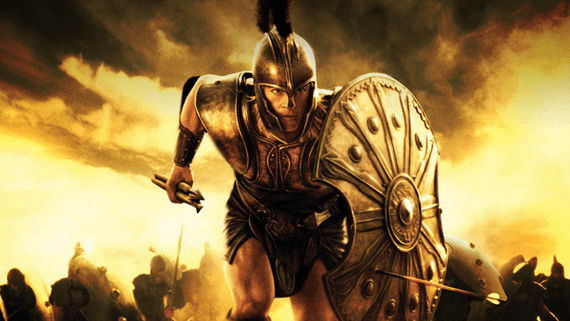Oh, No! I Ate Meat On A Friday of Lent!

So did I just ruin my entire Lent?
In a word, no.
No, your Lent has not been ruined. In fact, I would contend that you have actually been given an opportunity to have an even MORE grace-filled Lent than if you hadn’t eaten meat on a Friday.
How so? Will get back to this in a moment.
First though, we need to do an interior check on whether we actually forgot about not eating meat on a Friday of Lent, or whether we intentionally chose to “forget.”
If your instance of eating meat was related to the first situation, then recovery is simple. But if the instance was the second, well, then it becomes even MORE important to do the following:
Get thee to confession.
A lot of people in our society today struggle with the idea of being told to go to confession—either because of pride—“Who are YOU to tell me to go to confession.”
Or as is more often the case, we rationalize—“Why do I need to go to confession? What I did (like eating meat on accident in this instance) isn’t THAT big a deal.”
Unfortunately, when we rationalize, we are being self-indulgent and this tends to blind us to our sinfulness where we fail to see how even little things can be obstacles to receiving God’s love and grace—especially if we are presuming upon His mercy.
Both responses actually miss the point about why one goes to confession, and this brings me back to my earlier point about how your Lent has not been ruined, but rather you might have just been given an opportunity to have an even more grace-filled Lent than if you hadn’t eaten meat on a Friday.
Deacon Joel Haug, a religious brother of the Apostles of Interior Life Community, shared this wonderful quote recently:
“Lent is not about doing deadly things; it is about putting to death the deadly.”
And whenever we go to confession, we put to death whatever is deadly in our lives—be it big or small—and we open our hearts and souls WIDE OPEN to the extraordinary grace and mercy of our Heavenly Father.
And it is this idea of “putting to death the deadly” that is the source of the Lenten disciplines of prayer, fasting and almsgiving.
Because when we pray and fast and give of ourselves in love to others through almsgiving, we are having to get rid of whatever obstacles there are in our life that may prevent those disciplines.
Paul Thigpen, author of Manual of Spiritual Warfare, sums up beautifully how these disciplines are interconnected:
“Throughout Sacred Scripture, we find that when God’s people fast, the power of their prayers is increased, especially when they are engaged in spiritual warfare. In the Old Testament, the Lord told Isaiah that a fast properly undertaken would ‘loose the bonds of wickedness … undo the thongs of the yoke … let the oppressed go free’ (Is. 58:6) … In the New Testament, we find that Jesus fasted for forty days and nights in the wilderness in preparation for His battle with Satan, who came to tempt Him (see Lk 4:1-2) … If prayer is a spiritual weapon, fasting is the spiritual whetstone on which it is sharpened. It’s the spiritual muscle that, when exercised regularly, strengthens the thrust of that weapon to pierce the Enemy and drive him away.”
And driving the Enemy away is the battle in which we are all engaged together during this holy season of Lent.

If you effectively use the weapons you have access to, then you can play an integral part in the great victory over darkness, sin and death.
So did you ruin your Lent by eating meat on a Friday of Lent?
No. In fact, your “failure” might have just laid the groundwork for a greater victory.
But only if you utilize the great weapons of love and mercy at your disposal.
So get thee to confession, and have an even MORE grace-filled Lent then you might have been expecting.
Because “God uses all things to the good for those who love Him.”



